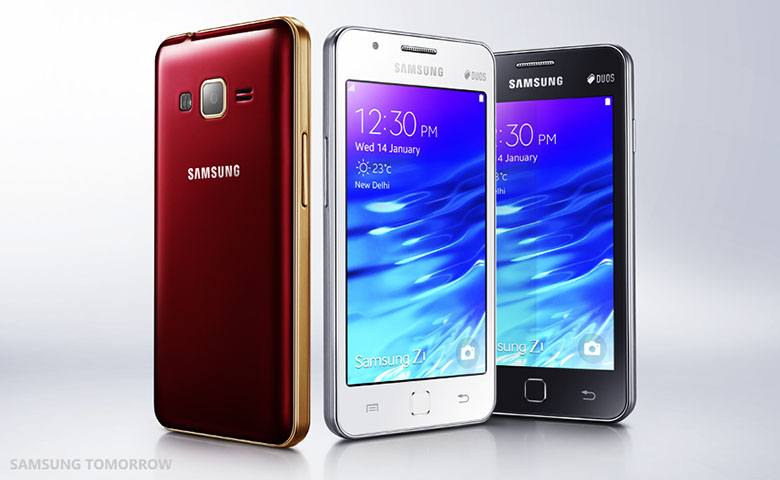by JAMES S. KIM | @james_s_kim
editor@charactermedia.com
Samsung just unveiled a new smartphone on Wednesday, but it’s probably not among those you’re looking for.
That is unless you’re in the market for a $92 smartphone (off-contract) that has the same specs as a device from, say, four years ago. But even if you were, you’d have to go to India to find one. If and once you cross the ocean, you’ll realize it doesn’t run Android, but something called Tizen (pronounced “tie-zen”). While the Z1 is one of the cheapest phones Samsung has ever launched, it’s also the first smartphone to feature Tizen, Samsung’s own mobile operating system.
What’s the big deal with Tizen? Samsung has made it very clear at this year’s Consumer Electronics Show that it is heavily investing in it. Their smart TVs, smartwatches and wearables all come installed with Tizen, and soon, all Samsung devices will include Tizen, including household appliances such as washers, dryers, robotic vacuums and refrigerators. It’s part of this mystical “Internet of Things” (IoT) plan that Samsung emphasized heavily during the convention, and Tizen will be the operating system connecting all these devices into the IoT “ecosystem.”
Samsung’s wonderfully obnoxious Super Ultra-HD TV display in front of their booth at CES 2015. The displays are so beautiful you don’t notice the model standing in front until he’s pointed out to you. Photos by KoreAm.
But should Samsung be investing so much in Tizen? All of their devices apart from the Z1 exclusively run on Google’s Android, and of all the smartphones and tablets in the tech market, Apple and Microsoft are the main competitors. Google and Apple as well as Microsoft, to some extent, have had the time and money to refine Android, iOS and Windows.
The South Korean company also does not have a reputation as a software company. They build gadgets and hardware, albeit damned good ones. However, their attempts at software haven’t been too well-received. TouchWiz–Samsung’s user interface, which has features built on top of Android in Galaxy devices–has been criticized for being too ugly, completely unnecessary and a drag on memory and processing speed. Apparently, Samsung is scaling back TouchWiz in its upcoming Galaxy S6. It was also the main reason why this writer chose a Motorola smartphone over the Note 4, which had really amazing specs, but an annoying UI.
Another challenge will be to grow and nurture developers for Tizen. Apple and Google have had that covered while Microsoft and Blackberry (yes, they’re still around) have struggled to provide the same number and quality of programs for their users. Tizen, however, would be starting from the ground up.
Samsung claims to have their bases covered. They tout Tizen to be “lighter” than other operating systems and more energy efficient, and the company specifically addressed creating an “expansive and vibrant ecosystem” for its users through supporting developers with software development kits for different Tizen devices.
They also echoed what Samsung CEO BK Yoon said during the company’s press conference at CES: Samsung isn’t in the game to “abandon” other operating systems. “Openness” and facilitating relationships with partners and other devices is key to a successful Internet of Things ecosystem.
At the end of the day, though, Samsung wants to make money, and Tizen might be their product to challenge Google and Apple in the mobile OS department. It remains to be seen if Tizen can break into the brand cultures Google and Apple have created with their own products.
If Samsung can “tie it all together” by proving that Tizen will be more convenient, affordable and just as cool as the others, it may have a chance. Strategy Analytics said last month that while Tizen will remain a niche player, it would be one of the fastest-growing operating systems along with Firefox and Windows in the next six years. Who knows, a $90 smartphone could truly be the “next big thing.” Or not.










